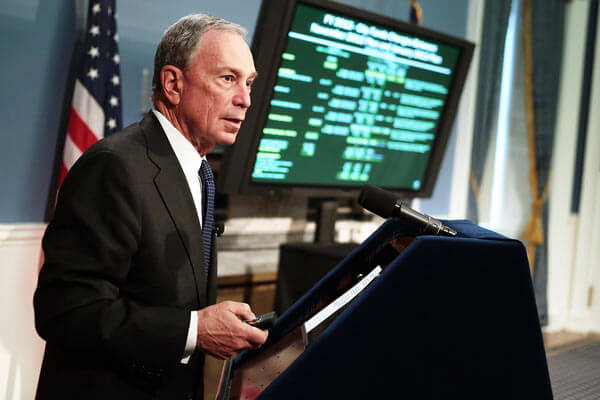By Joe Anuta
Mayor Michael Bloomberg presented his preliminary budget plan Tuesday for the next fiscal year and spent much time discussing the loss of hundreds of millions in education funds due to the impasse between his administration and the teacher’s union.
Bloomberg’s roughly $70 billion projected budget is balanced without any tax increases, according to the mayor, who touted a 6.9 percent increase in private sector employment since 2009, while the national rate of growth was 3.9 percent. Bloomberg also pointed to $6.5 billion in savings from an ongoing belt-tightening that city agencies have been performing since 2007. The proposal included no funding for 20 firehouses. It banks $600 million on a prediction the city will win a court battle to sell taxi medallions in the outer boroughs.
Bloomberg did not hold back against the United Federation of Teachers after the two sides failed to reach an agreement about teacher evaluations by Jan. 17, a deadline set by Gov. Andrew Cuomo. The agreement was required for the city to receive $250 million in education funding this fiscal year, and the loss of those millions will translate directly to 700 fewer teachers who will leave by attrition. It also means fewer extracurricular activities and after-school programming.
“It will not be good for the kids,” Bloomberg said. “But I’m convinced the suffering we will go though will be more than worth it to finally get an evaluation deal.”
Bloomberg has said repeatedly that quality teachers are the most important factor in education and accused the UFT of promoting an evaluation contract that would have to be renewed each year — which other municipalities in the state have agreed to — though the actual evaluation period is two years.
“We are not going to do that,” he said. “If we have a deal, which I would love to have, it’s going to be a real deal that can stand the laugh test.”
Without an agreement by Sept. 1, Bloomberg said, the city could lose nearly $2 billion for education funding next year.
The problems with education spending, the mayor said, are exacerbated by the growing disparity in how the city and the state share costs. In 2002, the city and the state roughly split the cost of the city’s public schools, but gradually the city has come to pay about 60 percent of the cost and the state 40 percent, and has added about $8 billion per year to the education budget.
But not everybody was on board with the mayor’s defense.
“He should look to the DOE’s runaway consultant spending rather than make cuts to the classroom,” City Comptroller John Liu said in a statement. “This budget illustrates the mayor’s continuous refusal to negotiate contracts with our city’s workforce, which he is leaving for the next administration.”
The $4.1 billion price tag from Hurricane Sandy will be picked up by the federal government, according to Bloomberg, and will not be pulled from the city’s revenue.
Uncontrollable costs like pensions and fringe benefits are also sapping the city of its funds. These costs rose $1.8 billion from last year, which represents a 6.8 percent increase.
Reach reporter Joe Anuta by e-mail at januta@cnglocal.com or by phone at 718-260-4566.






































